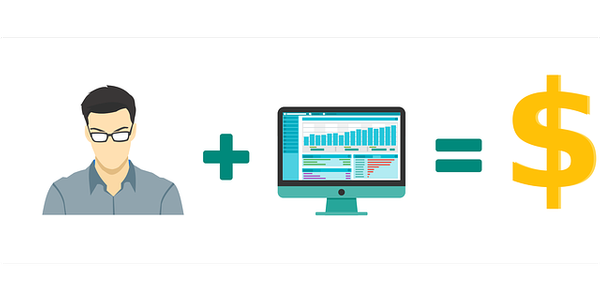Four Key Tax Tips to Remember this April 15th
April 10, 2019
You promised yourself that this would be the year you wouldn’t file for an extension with the IRS, resounding to get your taxes done on time before the April 15th deadline —but commitments to family, work and friends have you behind the eight ball again. At Advanced Tax Solutions, we pride ourselves on our ability to help local businesses from in and around Denver, independent contractors from Aurora and families from Littleton with all their tax filing needs. With the April 15 filing deadline fast approaching —you can’t afford to wait to file any longer! Whether you choose to file with our team of tax pros or you’re going it alone, here are some important things to remember when filing your federal taxes.
Get Your Paperwork Ready
As you well know, there’s a variety of forms and other documents you’ll need to file your taxes promptly, and the best way to be prepared to file is to have all of that information readily on-hand. Salaried employers will need to have their IRS W-2 form from their employer which summarizes their income and taxes paid throughout the year. Any and all income earned on the side from a job, bank account or financial investment will require the submission of relevant 1099 forms.
If you are a homeowner, you’ll also need a variety of documents to give the IRS proof of how much property taxes you paid in 2018. You’ll need to log on to your lender’s website to obtain your mortgage interest statement. If you’re itemizing business expenses, such as cost of mileage on your vehicle, job-related supplies, or work-related travel, you'll need receipts and credit card statements showing what you spent. Depending on the nature of your business you’ll also need a Schedule C to file business expenses. Similarly, those claiming medical expense deductions need to show receipts for co-pays and out-of-pocket expenses related to your care.
Report All Your Income —Don’t Cut Corners
When it comes to filing taxes with a limited amount of time remaining, it’s easy to be tempted to cut corners. If you only did what you perceive to be a little paid freelance work here or there, forget your login to your mortgage lender’s website, or misplaced your W-2, it can be tempted to just omit these items from your return. And while you might overlook the absence of these documents as no big deal, it’s a big deal to the IRS.
Firstly, for every 1099 form you’ve completed via an employer, the IRS receives a copy directly from that employer stating what you earned.
Failure to report any and all sources of income can lead to an IRS audit of your finances, additional fees, and potential financial penalties down the road. It’s worth it to take the extra effort to ensure that all of your paperwork is accounted for and organized, and that your entire year’s financial picture is available come tax time.
Do Not Fudge Deductions
Whether it be due to haste, or the inability to arrive at precise figures, many of those who rush their taxes to meet the April 15th don’t just make a habit of supplying insufficient documentation, they also fudge their deductions. This is also a major mistake. The IRS utilizes a variety of algorithms to compare your deductions to previous years, so any erroneous or awkward information made on your return is almost always red flagged.
Hastily documenting deductions with large, round numbers is another way to alert the IRS of potential purposeful errors. Take the time to document all of your income and deductions carefully, and accurately.
Fudging deductions won’t just get you in trouble with the IRS, it can also harm your financial future. When it comes time for mortgage company or to banks review your application for a business or personal loan, they’ll often request copies of your tax returns from the IRS to verify your total income. If there is any misinformation about your income in IRS records, you may be denied for the loan you need.
Go Back Get Your Paperwork Ready
As you well know, there’s a variety of forms and other documents you’ll need to file your taxes promptly, and the best way to be prepared to file is to have all of that information readily on-hand. Salaried employers will need to have their IRS W-2 form from their employer which summarizes their income and taxes paid throughout the year. Any and all income earned on the side from a job, bank account or financial investment will require the submission of relevant 1099 forms.
If you are a homeowner, you’ll also need a variety of documents to give the IRS proof of how much property taxes you paid in 2018. You’ll need to log on to your lender’s website to obtain your mortgage interest statement. If you’re itemizing business expenses, such as cost of mileage on your vehicle, job-related supplies, or work-related travel, you'll need receipts and credit card statements showing what you spent. Depending on the nature of your business you’ll also need a Schedule C to file business expenses. Similarly, those claiming medical expense deductions need to show receipts for co-pays and out-of-pocket expenses related to your care.
Report All Your Income —Don’t Cut Corners
When it comes to filing taxes with a limited amount of time remaining, it’s easy to be tempted to cut corners. If you only did what you perceive to be a little paid freelance work here or there, forget your login to your mortgage lender’s website, or misplaced your W-2, it can be tempted to just omit these items from your return. And while you might overlook the absence of these documents as no big deal, it’s a big deal to the IRS.
Firstly, for every 1099 form you’ve completed via an employer, the IRS receives a copy directly from that employer stating what you earned.
Failure to report any and all sources of income can lead to an IRS audit of your finances, additional fees, and potential financial penalties down the road. It’s worth it to take the extra effort to ensure that all of your paperwork is accounted for and organized, and that your entire year’s financial picture is available come tax time.
Do Not Fudge Deductions
Whether it be due to haste, or the inability to arrive at precise figures, many of those who rush their taxes to meet the April 15th don’t just make a habit of supplying insufficient documentation, they also fudge their deductions. This is also a major mistake. The IRS utilizes a variety of algorithms to compare your deductions to previous years, so any erroneous or awkward information made on your return is almost always red flagged.
Hastily documenting deductions with large, round numbers is another way to alert the IRS of potential purposeful errors. Take the time to document all of your income and deductions carefully, and accurately.
Fudging deductions won’t just get you in trouble with the IRS, it can also harm your financial future. When it comes time for mortgage company or to banks review your application for a business or personal loan, they’ll often request copies of your tax returns from the IRS to verify your total income. If there is any misinformation about your income in IRS records, you may be denied for the loan you need.



















